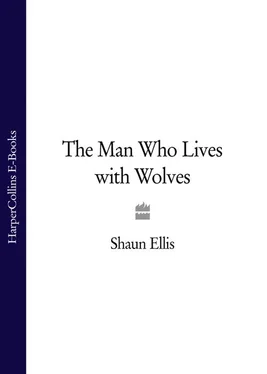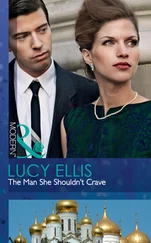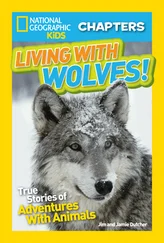Whenever I introduced a child to the wolves, it was vital that the child did not become frightened. I had to watch their reaction carefully so that I didn’t do more harm with this exercise than good.
This boy didn’t speak. His disabilities were clearly mental as well as physical and I guessed he might have been autistic. I could immediately see there would be a problem and asked the father, as tactfully as I could, whether the child would be able to indicate when he no longer wanted to be near the wolf, explaining how important this was. “He won’t be able to,” said the man, bluntly. “He has never spoken, and never reacted in any way to anything. And he has never expressed an emotion in his life.”
Common sense was screaming at me to tell this man to turn around, to take his poor child all the way back to Scotland, but for reasons I can’t explain, and a few I can, I agreed to go ahead.
There was a young wolf called Zarnesti in the enclosure that had been handled a lot in his first few months of life and was perfect, therefore, for introducing to children. His mother had stood on him or rolled on him soon after birth, crushing his jaw. As a result he had been hand reared and was not as nervous around humans as most wolves. I loved him; he had the most wonderful character, but he looked a bit like Goofy, the dog in the Mickey Mouse cartoons.
Questioning my sanity, I went into the enclosure and came out carrying Zarnesti. He was then about three months old, the size of a spaniel and a wriggling, struggling bundle of energy. It was all I could do to hold him; he was almost flying out of my arms as I put him down onto the tray on this old-fashioned wheelchair, in front of the boy. I had the pup in a viselike grip, but something miraculous happened. The moment Zarnesti saw the child he became still. He looked into the boy’s eyes and they stared at each other. Then the pup settled down with his back legs tucked under him and his front legs stretched out in front. I took one hand off him and I realized very quickly that I could take the other hand away, too. After a few moments, still looking into his eyes, the cub reached forward and started to lick the boy’s face. I lunged to intercept him, terrified that Zarnesti would nip the boy’s mouth with his needle-sharp teeth, which is what cubs do to adult wolves when they want them to regurgitate food. But Zarnesti didn’t nip; he just licked, very gently.
The scene was electrifying. As I looked at the boy I saw one single tear welling up in his right eye, then trickle slowly down his cheek. Guessing this had never happened before, I turned to his father. This big, strong, capable Scotsman was standing, watching what was unfolding in front of him, with tears streaming down his face. In a matter of seconds, the wolf cub had gotten through to this boy in a way that no human had managed to do in fourteen years.
CHAPTER ONE
A Special Relationship
It was early morning. I had crept out of my bed, as I often did as a child, and gone out into the barn where the farm dogs slept, to curl up with them—something to which my kindly grandparents turned a tolerant eye. I was a loner; the dogs were my closest friends and the nearest I had to siblings. I woke up to find the oldest of the dogs standing over me, his head facing the door. When I stirred, he turned to look at me and raised an eyebrow. I could tell immediately that something was wrong. His mouth was open and saliva was dripping from his tongue. The younger dogs were lying curled up by my side, which is where Bess, the oldest, should have been, too. I could hear a great commotion in the yard outside and my grandfather was calling my name. I can’t have been more than six or seven years old, but it’s a memory that has stayed with me, and although I had no notion of it at the time, it was the beginning of a very long journey for me.
Bess had bitten one of the farmhands, whose arm was crudely bandaged with a handkerchief and spots of blood were seeping through the flimsy material. He was complaining bitterly. He had come into the barn to collect a chain saw that was on a shelf above my head, and without warning the dog, who knew him well, had gone for him. Bess wasn’t a vicious dog; he had been on the farm all his life and had never been known to attack before. The man was highly indignant, but my grandfather, a wise and wonderful old man not given to hysteria, soon managed to calm the situation. He had lived in the country alongside animals all his life, as his father had before him, and he knew at once what had happened. My bond with the farm dogs had become so close that Bess, the oldest and most dominant dog, had come to regard me as one of the pack, and a young member at that. When the farmhand burst into the barn, waking Bess and probably the other dogs, too, Bess thought I was in danger and he was protecting me in the only way he knew how, the way that his wild relatives might have protected their young.
My grandfather decided that in the interests of safety it was time to ban my nighttime excursions to the barn, but he recognized that the dogs played such an important part in my well-being that I should be allowed to have one of my own, which could sleep with me in the house.
The dog of a neighboring farmer had had pups and not long after this incident, my grandfather took me to choose one from the litter. We had no car in those days; my grandparents were simple folk who lived from hand to mouth. A lot of what we ate came from the wild. We would shoot rabbits, hares, pigeons, and pheasants but I was always taught to hunt in moderation, to respect nature and never to take more than we needed or more than the population could sustain. Whenever I made a kill, I knew to cut the animal open lengthways to remove the innards and throw them into the hedgerow for other creatures to scavenge. I had no qualms about killing or skinning rabbits and hares to prepare them for the pot. Life and death were all part of the natural world and on the farm we were very much a part of it.
Although the farmer with the puppies was a neighbor, the definition of neighbor in our world was someone who lived within a day’s walk, and we set off right after an early breakfast, when it was barely light. It was a cold morning; I could see my breath in the frosty air, and I had on a warm coat and boots. Over my shoulder was a poacher’s bag that carried cold tea and thick cheese sandwiches that my grandmother had made for us. I was used to long walks—I often accompanied my grandfather when he went to pay his respects or do business with neighboring farmers—and I used to relish time spent alone with him. There were no other children around the farm for me to play with, no television, no video games or any of the other things that keep children amused these days. We were miles from anywhere; there was just me and my grandparents, the dogs and the farm animals. Occasionally—or so it seemed to me then—my mother would appear, but it was rare and my father was never mentioned.
But I was not unhappy. I adored my grandparents and never thought for a moment that I was missing out. My grandfather and I would take the dogs with us on our walks, and we would never get far before he’d be stopping to point out something of interest. It might be an abandoned nest in the hedgerow—he would tell me all about the birds that had inhabited it, and how many young they would have produced, how far their territory would have extended. He would dissect the nest so I could see the skill with which it had been constructed. He’d spot a broken bird’s egg lying on the ground, and would explain how it might have got there, stolen from the nest by a predator maybe; or he’d pick up an owl’s pellet deposited on a wooden gatepost, and pull it apart, exposing the tiny fragments of bone, all that remained of the rodents the great raptor had feasted on during the night.
Читать дальше












